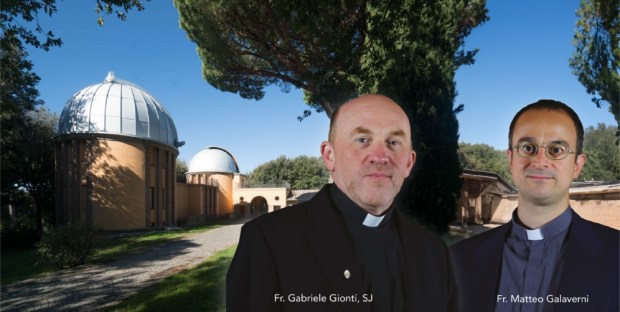In 1931, a Catholic priest by the name of Fr. Georges Lemaître put forward the Big Bang theory, a theory of the universe’s origins that guides scientists and is generally accepted to this day. Now, a pair of Catholic priests from the Vatican Observatory are expanding our understanding of the Big Bang by developing a mathematical method that could help explain exactly what occurred at the very beginning of the cosmos.
Fr. Gabriele Gionti, S.J., and Fr. Matteo Galaverni published their preliminary findings on a promising mathematical tool in the prestigious journal Physical Review D in 2022. According to a press release from the Vatican Observatory, the pair have refined their work for a second paper on the topic to be published in the European Physical Journal C.
Titled “On the canonical equivalence between Jordan and Einstein frames,” the paper is concerned with the behavior of gravity on a cosmic scale. The concept of gravity has existed since at least the time of Aristotle, who theorized that the reason objects fall to the ground when dropped is that they possess “gravity” or “heaviness” that draws them to the center of the universe, which Aristotle considered to be the Earth.
This theory was expanded by Isaac Newton, who thought that an object’s fall is driven by a “gravitational” force present between all mass-having objects -- for example, an apple and the Earth. Newton’s work was similarly expanded upon by Einstein, whose theory of relativity suggests that the motion of an object’s fall is due to a warping of space and time produced by the Earth’s mass. This is currently the most accepted theory in the scientific community, which is said to “explain observed phenomena that Newton’s theory cannot.”
Still, there are many questions about how the laws of physics played out during the Big Bang, as well as the physics of gravity at the smallest scales. This is where Frs. Gionti and Galaverni enter the conversation. In their paper, they show that solutions to a physical problem from an alternative theory of gravity can be transformed, or “mapped,” through a mathematical “trick” that observes the problem through two different mathematical “frames.”

The mathematical frames – from which the term “frame of reference” originates – in question are known as the “Jordan” and “Einstein” frames. The usage of these frames is very technical, but the priests attempted to explain it in layman's terms in the paper:
“The check of whether or not the physical observables calculated separately in the Einstein and Jordan frame, reproduce the same result in both frames, should throw light on the physical equivalence of Jordan and Einstein frames.”
Furthermore, the priests found similarities between alternate theories of gravity and a peculiar behavior of gravity called “anti-Newtonian” or “anti-gravity.” The two said that they found their mathematical analysis of gravity to be compelling. They called the pursuit of the understanding of the physical laws of the dawn of the universe “fascinating,” noting that their work fills their hearts and minds “with a lot of joy.”
“It is a way to contribute — together with all the scientific community — to answer some fundamental questions: Who are we? Where did we come from? What is our origin?” The priests commented in a press release. “Furthermore, for a person of faith, it is a wonderful possibility to interpret his research as a discovery of new traces or signs of the beauty and of the elegance of God in creating the universe — despite our extremely limited knowledge!”



